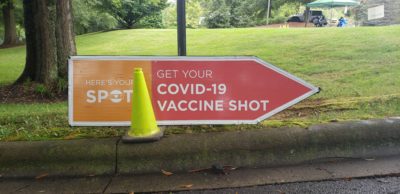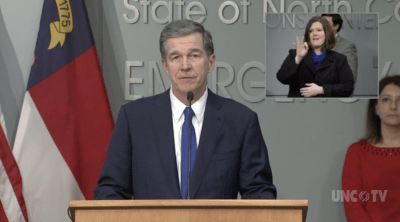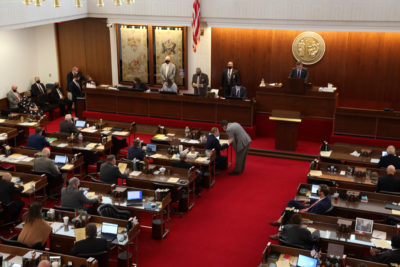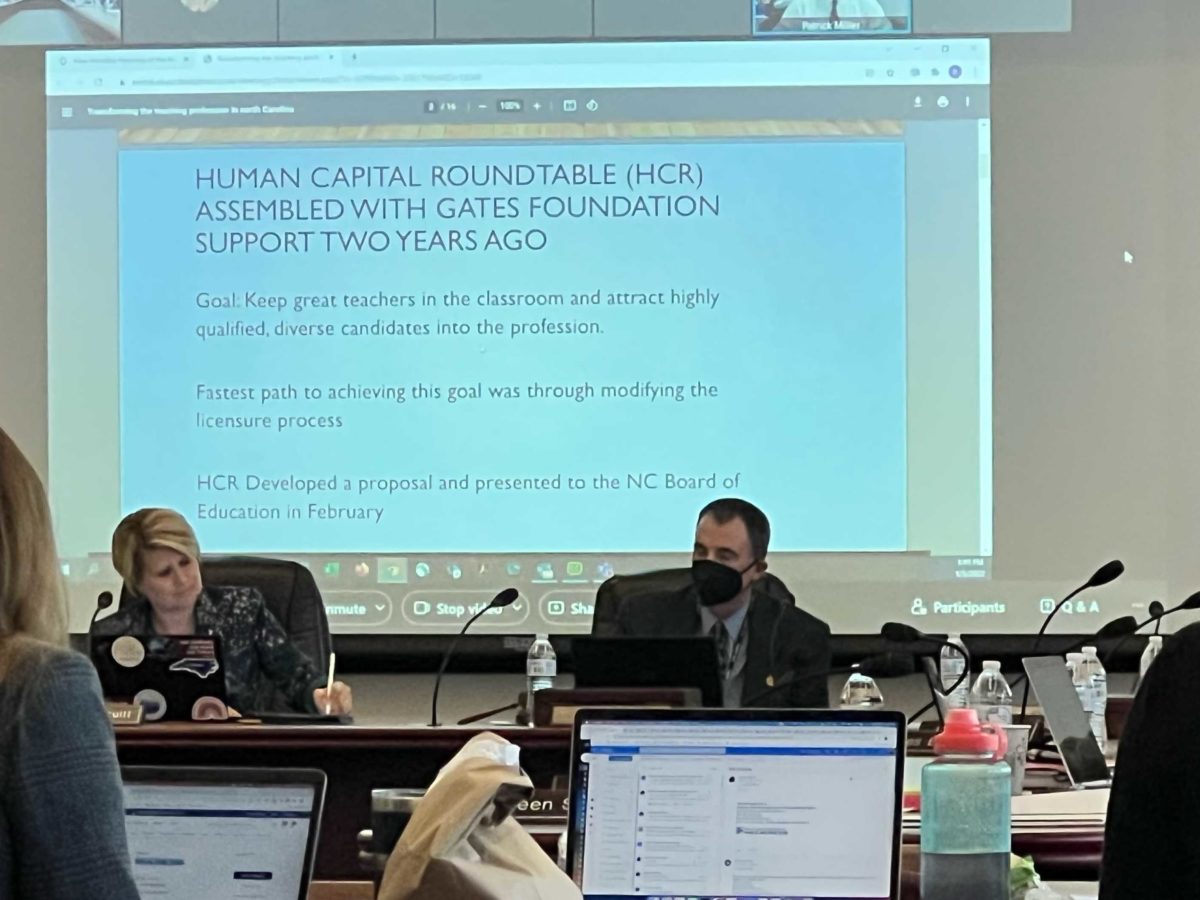
It may be a new year, but the State Board of Education is still dealing with some of the same questions.
As a new semester begins, all four key COVID-19 metrics are spiking in North Carolina, said State Health Director Betsey Tilson. Specifically, cases among school-age children are reaching their highest levels since the school year started back in August.
Because of this, many educators and parents are wondering if — and how — they need to adapt. Thanks to legislation passed in 2021, schools are allowed to close for pandemic-related emergencies.
Because North Carolina’s youth vaccination rates lag behind other age groups, Tilson told the Board that encouraging people to get vaccinated is one of the best ways to deal with COVID-19. Currently, children ages 5 and up are eligible to receive the Pfizer-BioNTech COVID-19 vaccine, and the Food and Drug Administration (FDA) recently expanded booster eligibility to 12-to 15-year olds.
But Tilson emphasized that COVID-19 requires layered prevention, including mask-wearing, ventilation, and cleaning.
The StrongSchoolsNC Public Health Toolkit now matches recently updated CDC guidance. In addition to briefing the board on these developments, Tilson also highlighted recent research on masks.
Looking at 21 different studies, she said, masks overwhelmingly benefited schools. Schools that had mask requirements had far fewer COVID-19 clusters than mask-optional schools.
Here’s what else you need to know from the State Board meeting.
![]() Sign up for the EdDaily to start each weekday with the top education news.
Sign up for the EdDaily to start each weekday with the top education news.
‘The year of the workforce’
During her usual remarks to the State Board, state Superintendent Catherine Truitt said leaders need to rethink what a high school diploma means.
Truitt, who is entering the second year of her term as state superintendent, walked the Board through her vision and plans for the upcoming year. One of her goals is to better define what skills students need for success and adjust school accountability measures accordingly.
“We have got to redefine what the purpose of K-12 education is. Some would say it’s to produce critical thinkers,” she said, “but my team and I believe that the purpose of a public K-12 education is to prepare students for the postsecondary plans of their choice so that they can be a functioning member of the workforce.”
But according to a study on employer views from the Association of American Colleges and Universities, 95% of employers view critical thinking specifically as “very important” or “somewhat important.”
“Critical thinking and analysis, problem-solving, teamwork, and communication through writing and speaking have consistently been ranked highest over time,” the study said in reference to employer surveys.
Truitt unveiled her full strategic plan, Operation Polaris, last year. The plan details how the Department of Public Instruction will address pandemic-related issues, while also balancing plans for improving educational outcomes in the state overall. She emphasized this week that the pandemic has brought several challenges, particularly related to employee retention and learning recovery.
But this year, Truitt said, will be “the year of the workforce.” Over the next year, she said she plans to build on partnerships with organizations like the state Chamber of Commerce, and she wants to improve students’ understanding of their options after they graduate. She also plans to continue to get feedback from her Teacher Leadership Council and support learning recovery efforts.
You can see Truitt’s full presentation on her plan here. You can hear her full remarks here starting at the 35:54 mark.
Split vote over contract extension
In a split vote, the State Board approved the extension of a contract with UNC Chapel Hill’s Frank Porter Graham Child Development Center.
This contract with the center, which has been in place with DPI since 2013, is specifically for early childhood special education. The $7 million extension continues the program through 2025 and is funded through preschool development grants from the state Department of Health and Human Services (NCDHHS).
Board member Amy White brought up concerns with the center’s programming. She said she received an email about how the programming includes topics like “critical race theory” and “anti-racism.”
“I don’t know whether that was factual or not, but I’m bringing that to the table to ask whether or not that is true,” she said.
Daniel Tetreault, project manager for the Office of Early Learning, said he believed what White was addressing was a webinar. The webinar, he said, concerned equal access for children with disabilities to preschool programs in the state.
He said this webinar was on request from NCDHHS and is reviewed by DPI before it is provided.
“Is it true that the school’s ideology promotes that all students face systems and institutionalized racism that will prevent them from reaching goals in life?” she asked. “Is that an ideology of the school itself?”
Tetreault said he can’t speak to the philosophy of the center.
The FPG Child Development Center did release a statement on anti-racism in June 2020.
“We see the fingerprint of deep-seated systemic disparities and inequities fueled by institutionalized racism, hate, and intolerance,” the statement reads. “These attitudes permeate all evils in our society, at all levels, and degrade our collective humanity. If one of us feels unsafe and vulnerable, we are all vulnerable. Justice and equity can only work for everyone, or they do not work for anyone.”
Superintendent Catherine Truitt said moving forward, DPI will ask NCDHHS to contract separately because “we aren’t always on the same page about content with these things.” She also reiterated to White that “equity and culturally responsive training” in this program is specific to children with disabilities, and that all materials are reviewed by DPI.
White, Olivia Oxendine, Lt. Gov. Mark Robinson, and state Treasurer Dale Folwell all voted against the contract extension.
A new way to license teachers
The Professional Educator Preparation and Standards Commission (PEPSC) is exploring transforming the way teachers are licensed in the state.
Dr. Tom Tomberlin, director of education recruitment and support for DPI, and Dr. Patrick Miller, PEPSC chair and superintendent of Greene County Schools, are two leaders in this process.
Right now, they say, there is a narrow entry way into the teaching profession, while the requirements to remain in the profession are complex and burdensome.
Their idea is to transition to a licensure process that is based on student outcomes, which they say will give teachers ways to advance without becoming administrators, while also giving them opportunities to earn more.
The plan as it stands now would allow anyone with a four-year degree to become a teacher and earn their license on the job. Once they enter the profession, they have the opportunity to go through six tiers of licenses, corresponding to their experience and student outcomes.
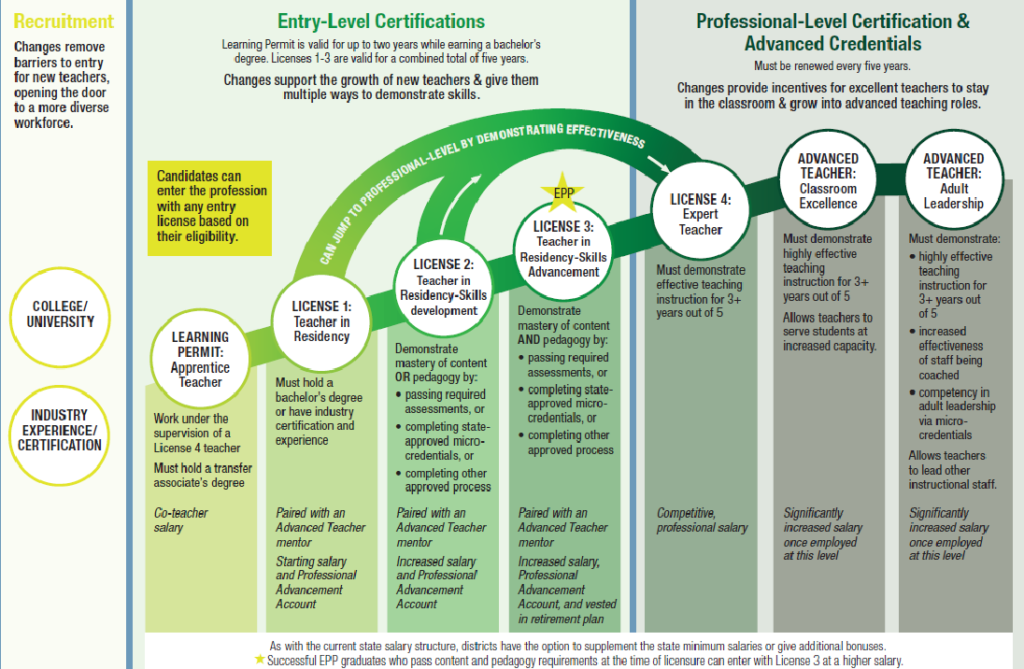
This change has a long way to go before it could take effect. PEPSC will continue working on the proposal, with the hopes of bringing it to the state legislature in next year. You can see the full presentation here.
If the change is adopted, North Carolina would be the first state in the country to innovate using an outcomes-based licensure model, Tomberlin and Miller said.
Tomberlin said the hope is to reward teachers for the work they’re already doing in the classroom.
“For the state, the job is to capture that in a way that is measurable,” he said, “but for the teacher, it is them doing what they do. Our job is to capture that and evaluate that in an objective manner.”
Superintendent Truitt expressed excitement at the idea. Young people who would be entering the profession now, she said, aren’t going to wait 25 years to reap the benefits.
“Since the moment I heard about this work, it gives me goosebumps,” she said. “I think there are a small handful of really innovative things that we are doing right now in our state in education, and this is one of them that has the most power to have the most chance for impact on student outcomes.”
National Blue Ribbon Schools
In September, eight North Carolina schools were recognized as National Blue Ribbon Schools. These schools were recognized as either Exemplary High-Performing Schools or Exemplary Achievement Gap-Closing Schools.
According to the U.S. Department of Education, these schools demonstrate “that all students can achieve to high levels.”
Several awardees were officially recognized by the State Board this week. Take a look below.
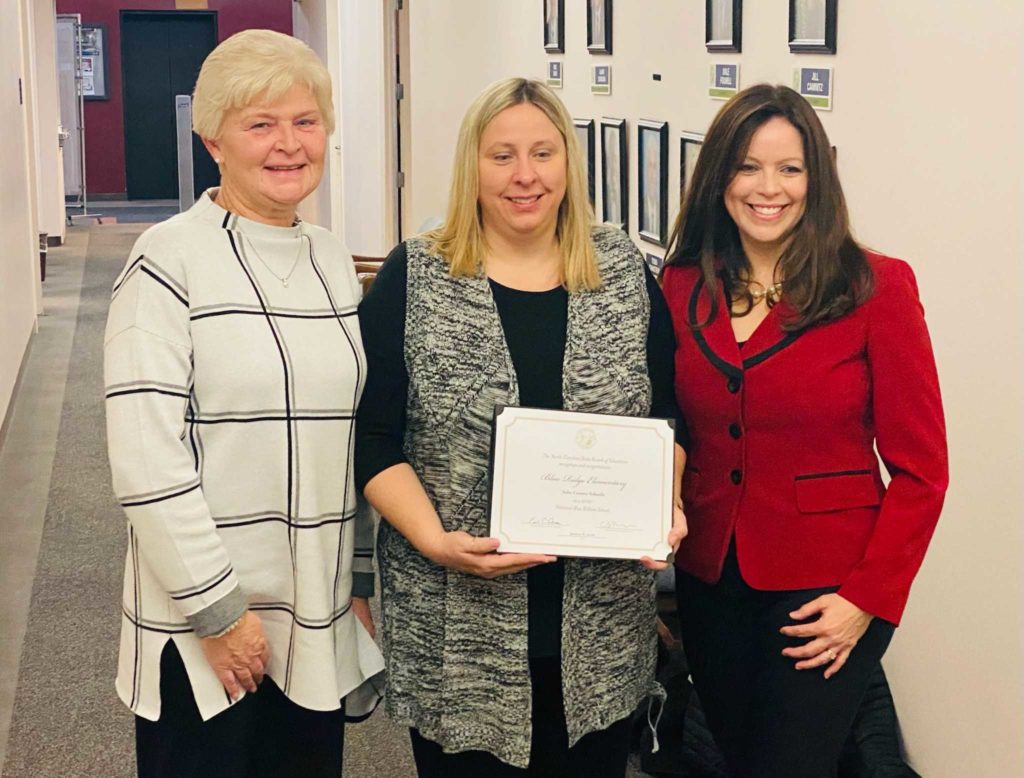
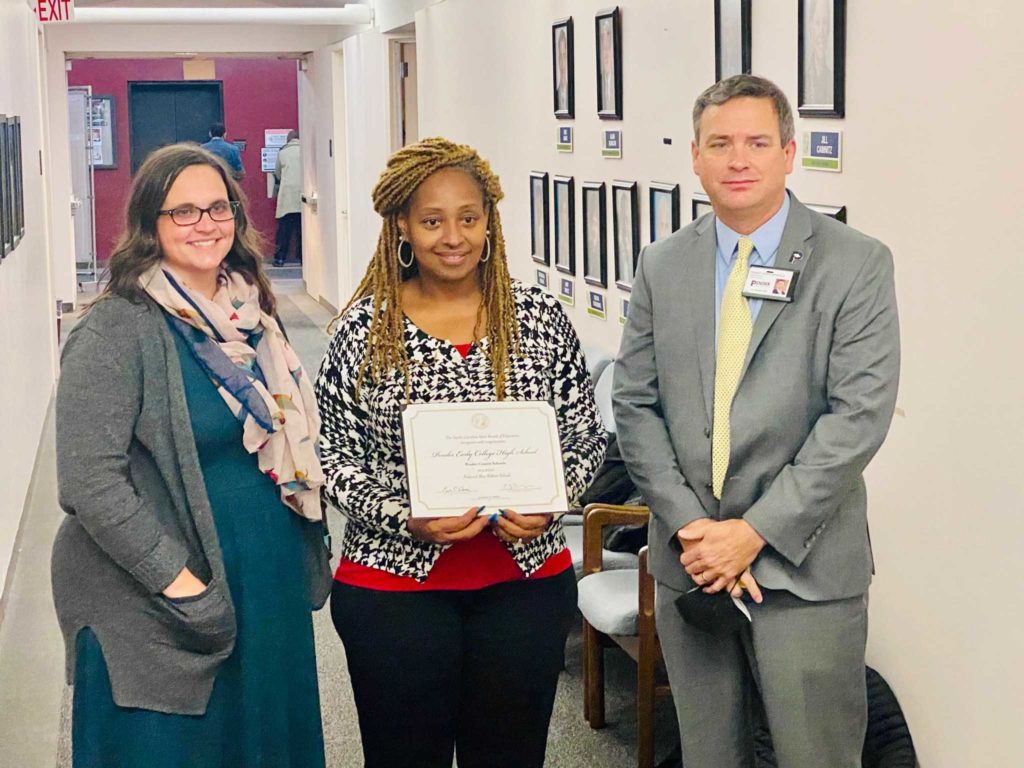
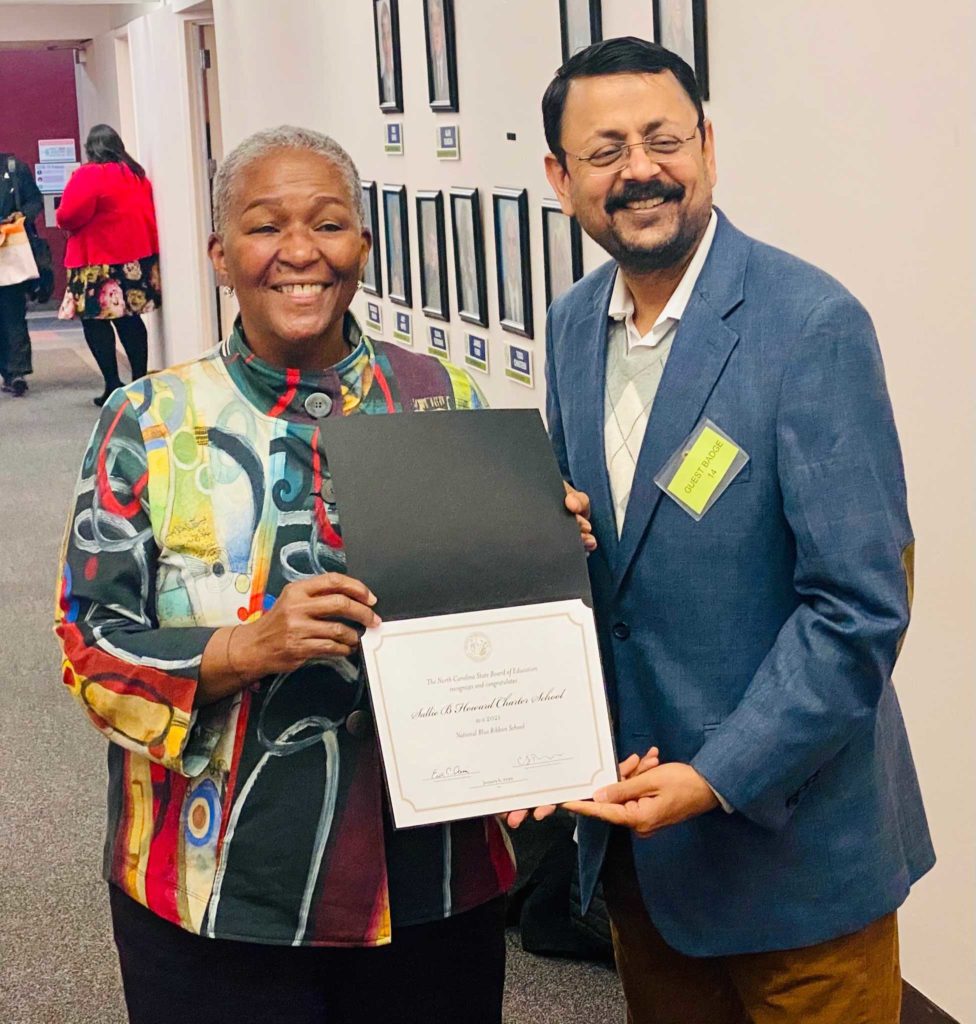
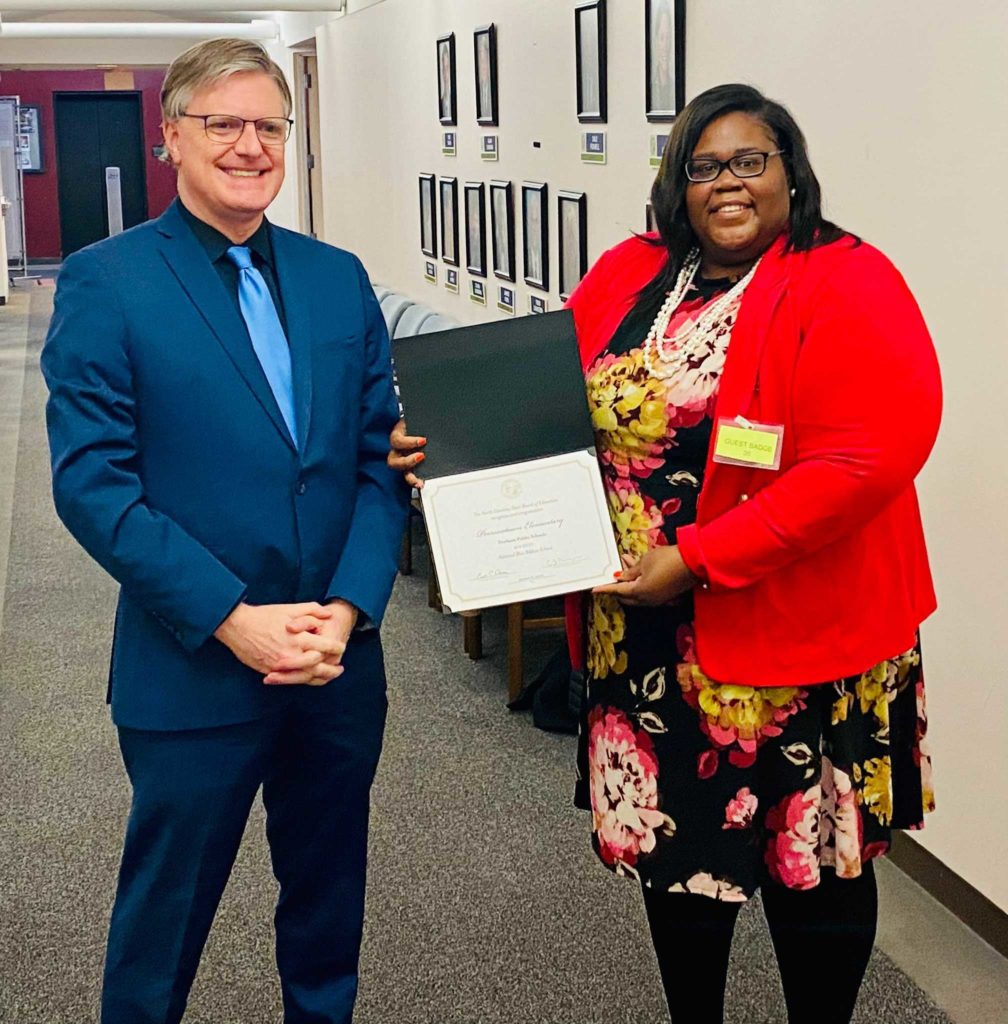
Recommended reading
